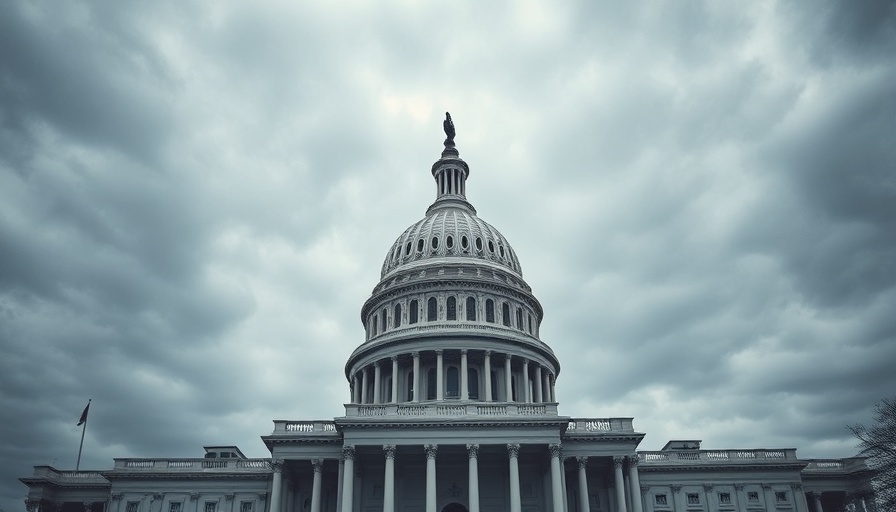
The Current Government Shutdown: A Deepening Crisis
As the government shutdown stretches into its second week, tensions on Capital Hill are escalating, with both parties accusing each other of playing politics over crucial issues. This ongoing impasse has far-reaching consequences for federal workers and the services that Americans rely on daily. Vice President JD Vance has publicly pointed fingers at Democratic leaders, particularly Senate Minority Leader Chuck Schumer, accusing them of holding the federal government "hostage" over a healthcare policy disagreement.
Understanding the Stakes: Who's Affected?
Hundreds of thousands of federal employees are facing the pressures of being furloughed without pay. The ramifications of the shutdown extend beyond lost wages; essential services, including those provided by the Smithsonian, are facing temporary closures. With each day that passes without resolution, the threat of further cuts looms, intensifying the stress for employees and the citizens who depend on government services.
Past Attempts at Resolutions: What Went Wrong?
Initially, the House passed a continuing resolution (CR) that would fund the government temporarily. However, this resolution fell flat in the Senate, where 60 votes are required for passage, a hurdle that has proven insurmountable. Efforts to break this deadlock have devolved into partisan finger-pointing, with leaders of both parties demanding that the other back down first. While Vance warns of potential deep cuts should the shutdown continue, his remarks add another layer of urgency to negotiations that seem to be going nowhere.
Health Care Subsidies: A Point of Contention
The heart of the matter lies in healthcare policy, specifically the extension of federal subsidies related to the Affordable Care Act, which Democrats insist must be included in any negotiations. The expiration of these subsidies poses a serious threat to millions. Tucker Carlson and other media figures have pointed out that the ongoing stalemate may end up costing ordinary Americans significantly as insurance premiums could rise sharply without government support.
Potential Outcomes: What Lies Ahead?
Current indications suggest that Republicans remain steadfast in their stance; negotiations regarding healthcare will only be entertained once the government reopens. This inflexibility could set the stage for deeper cuts by the Trump administration, as indicated by labor unions that have already filed lawsuits against the proposed layoffs of thousands of federal employees. The stakes are high, with many workers caught in limbo as negotiations stall.
The Political Ramifications of the Shutdown
As public sentiment grows weary of the shutdown, it raises the question of the long-term political consequences for both parties. The dynamic of blame-shifting may only serve to alienate constituents who rely on federal jobs and services. Further complicating this landscape are progressive activists who claim that Democratic messaging during the shutdown is resonating well with voters, indicating a possible shift in voter sentiment in upcoming elections based on how each party handles the crisis.
Conclusion: Why This Matters to You
With the government shutdown entering its 14th day, the urgency for lawmakers to strike a deal has never been clearer. The implications of their failure to reach an agreement extend far beyond Capitol Hill, affecting millions of Americans who depend on government services for their livelihoods and well-being. As the negotiations continue to falter, it is crucial for citizens to stay informed and advocate for action from their representatives.
For those concerned about the future of government services and federal employment, your voice matters more than ever. Engage in discussions with your local and national leaders about the impact this shutdown is having on your community. Don't wait for the government to resolve its issues on its own—participate actively in shaping the outcome.
 Add Element
Add Element  Add Row
Add Row 



Write A Comment